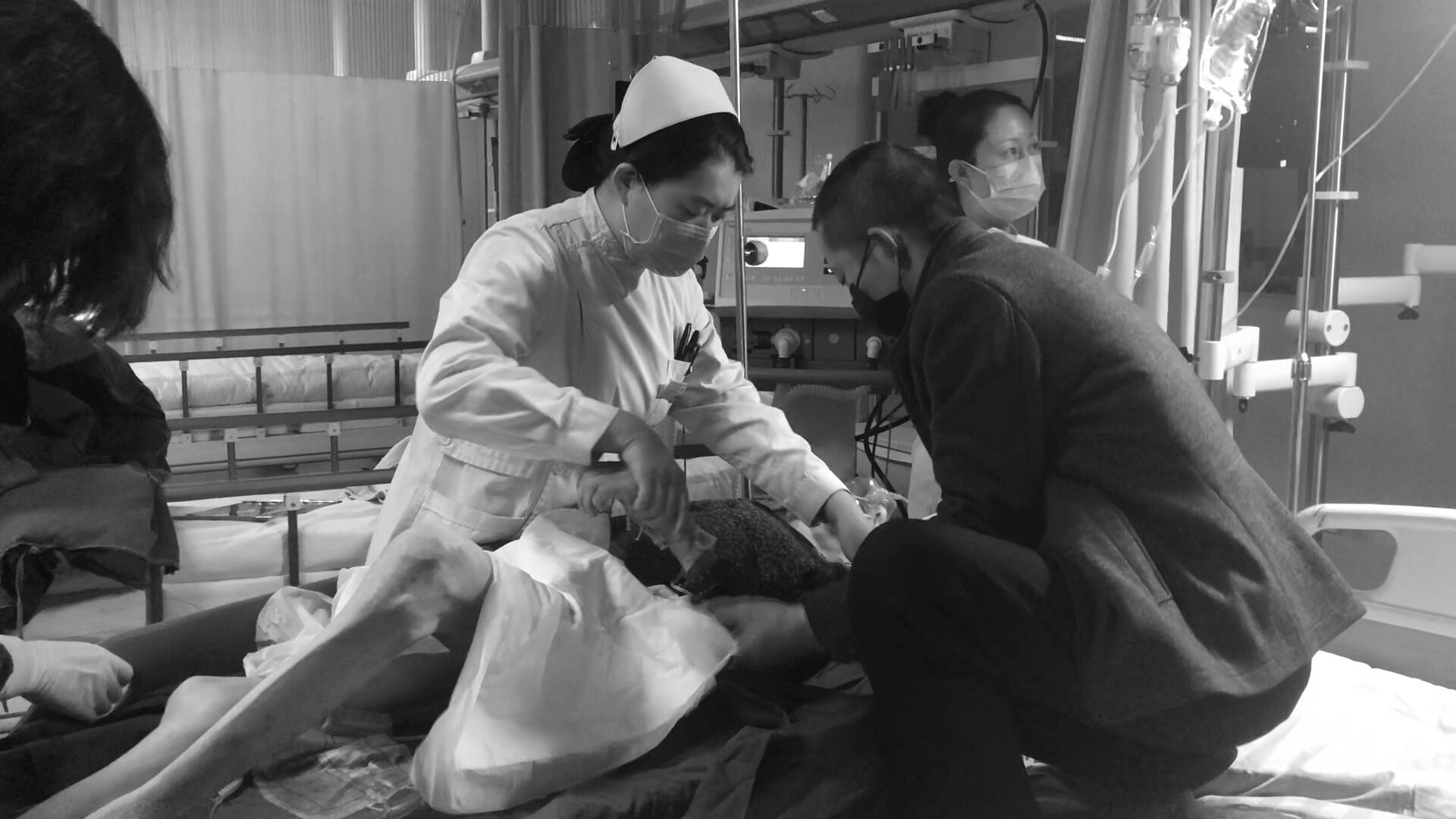‘The Ark’: Inside a Chinese hospital during COVID-19
Dan Wei's documentary, filmed during the pandemic, doesn't put the coronavirus front and center. Instead, it's an up-close look at Chinese healthcare, as experienced by an elderly patient and her family.

When COVID-19 was declared an epidemic in China in early 2020, onlookers paid intense attention to how the Chinese government would respond to this large-scale medical crisis. What was in considerably lesser focus was how Chinese individuals responded on a smaller scale. This is in part because the Chinese medical system is relatively opaque, particularly to outsiders. With The Ark, director Dan Wei lifts the mystery somewhat, using his own family as proxies in a documentary that doesn’t deal with COVID-19 directly, but does show a snapshot of end-of-life care concurrent with the epidemic.
For better or worse, The Ark is an intensely personal project. This choice is a stylistic one. Wei wanted to emphasize the bleakness of endless hours spent at the hospital and the ceaseless negotiations between family about how to get the best possible care for his dying grandmother. The atmosphere of the hospital’s huge, empty halls is oppressive. Through them, Wei shows that dying in a hospital bed in China is no more or less pleasant than it is anywhere else. The Ark is, for all its framing, less a movie about the Chinese healthcare system than it is about death itself.
This may prove a bit of a frustration to the international viewer who wants The Ark to make more of a point. The Ark so deliberately goes out of its way to avoid revealing the setting that it almost feels like censorship. It might be set in Shaanxi, as “The Ark,” literally 坊州, can also be read as the name of that province in antiquity. If this information was in the movie, it flashed by too quickly for me to make a note of it, and subsequent attempts on my end to confirm this background either with public information or contacting the relevant production companies has proved fruitless.
In one sense it’s appropriate for Wei to think this information is not worth belaboring. His grandmother is from a rural area, a world completely alien to him. She had five children, several of whom bicker at the hospital over the kind of care she should receive. I remember these details easily, as they’re important to understanding the documentary’s impending sense of mortality and doom.
Nevertheless, the lack of hard information will no doubt be frustrating to those wanting a better understanding of how the Chinese medical system works. Although once again, Wei appears to think of this information as generally irrelevant.
Another tantalizingly vague hook is how his family argues over the extent to which they should bribe doctors for better care. At face value these scenes, which explicitly use the word “bribe” in English subtitles, seem fairly damning of Chinese hospital culture. Yet in trying to dig around for verification on this point, I found a rather more muddled picture. When I discussed these scenes with a Chinese doctor, she insisted that Chinese doctors do not take bribes as a matter of course. However, because of the importance of social relationships in Chinese culture, and the giving of gifts to maintain these relationships, some people assume that through this manner they can buy their way into better medical care for loved ones. This interpretation is consistent with what’s presented in The Ark, as it is unclear whether any of the proposed bribery schema will actually work, and no doctor on screen so much as implies a willingness to take a bribe.
Connecting this subtext greatly improved my understanding of The Ark, but the movie I saw, as edited for the Jeonju International Film Festival, gave a very misleading idea of corruption in Chinese social life. Maybe Dan Wei didn’t mind this implication so much. We see light criticism of the Chinese government sprinkled throughout The Ark, mainly in the form of family members agitated by the increased importance of money in daily life and how it relates to their current situation.
None of this should be overemphasized. The Ark is slowly, inevitably trending to an ending — and this is hardly a spoiler — where the grandmother dies. Despite all the discomfort and pain we’ve seen her in up until that point, in sometimes graphic detail, the final act of The Ark is surprisingly peaceful. It is also, not coincidentally, the only time we see the rest of the family interact with her directly instead of just talking about her with each other in horrifically suffocating hallway scenes.
The Ark comes with a lot of caveats. You may have noticed that despite the opening of this review I didn’t actually discuss COVID-19 at all. Well, neither does movie. The epidemic (it was not yet a pandemic) is disembodied background noise, useful mainly for contrasting with the bitter cynicism engendered by the unpleasant hospital stay of Dan Wei’s family. True to life as such framing may be of the modern hospital experience in general, The Ark is not particularly useful either as a film about China or COVID-19.







